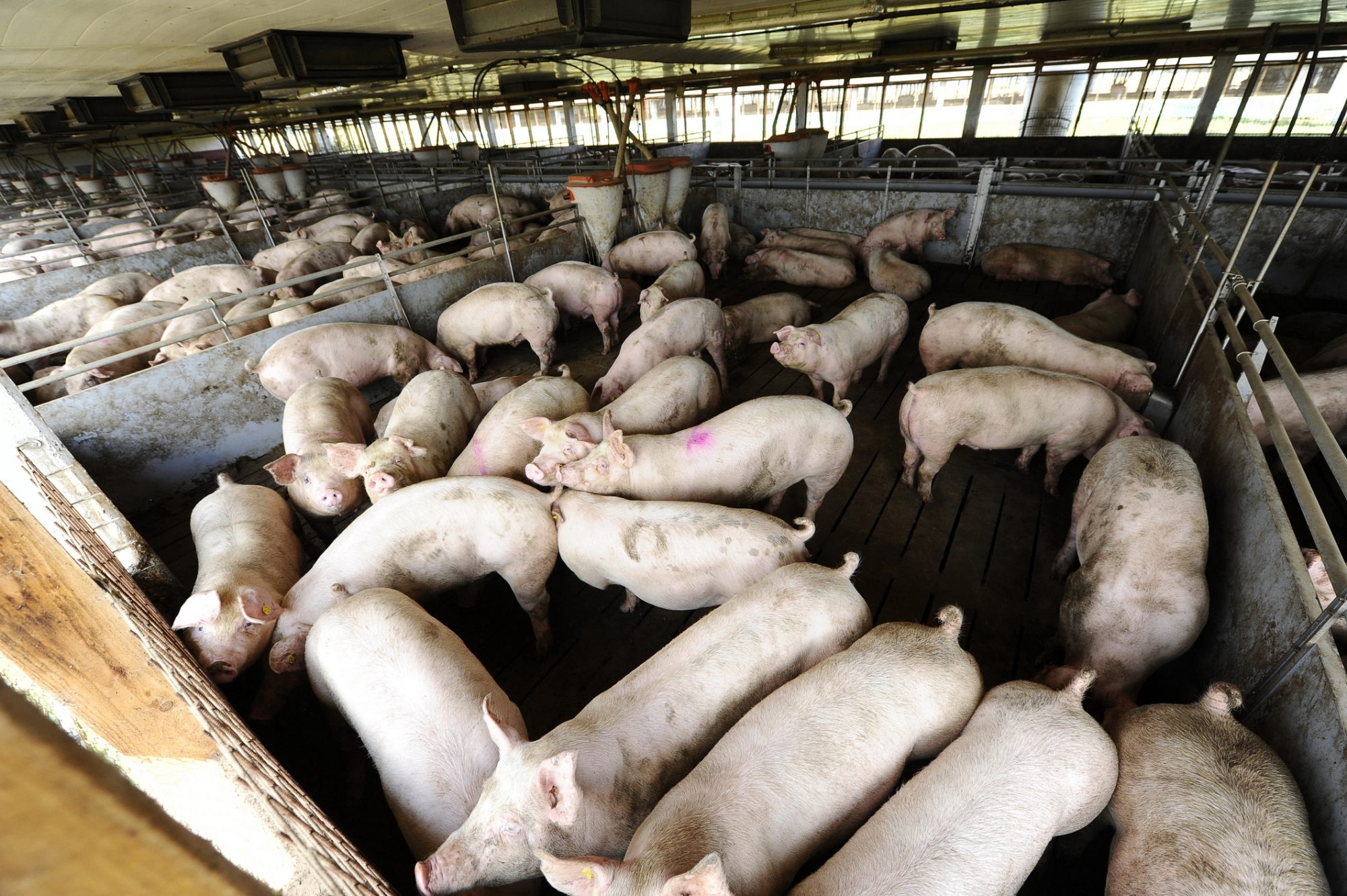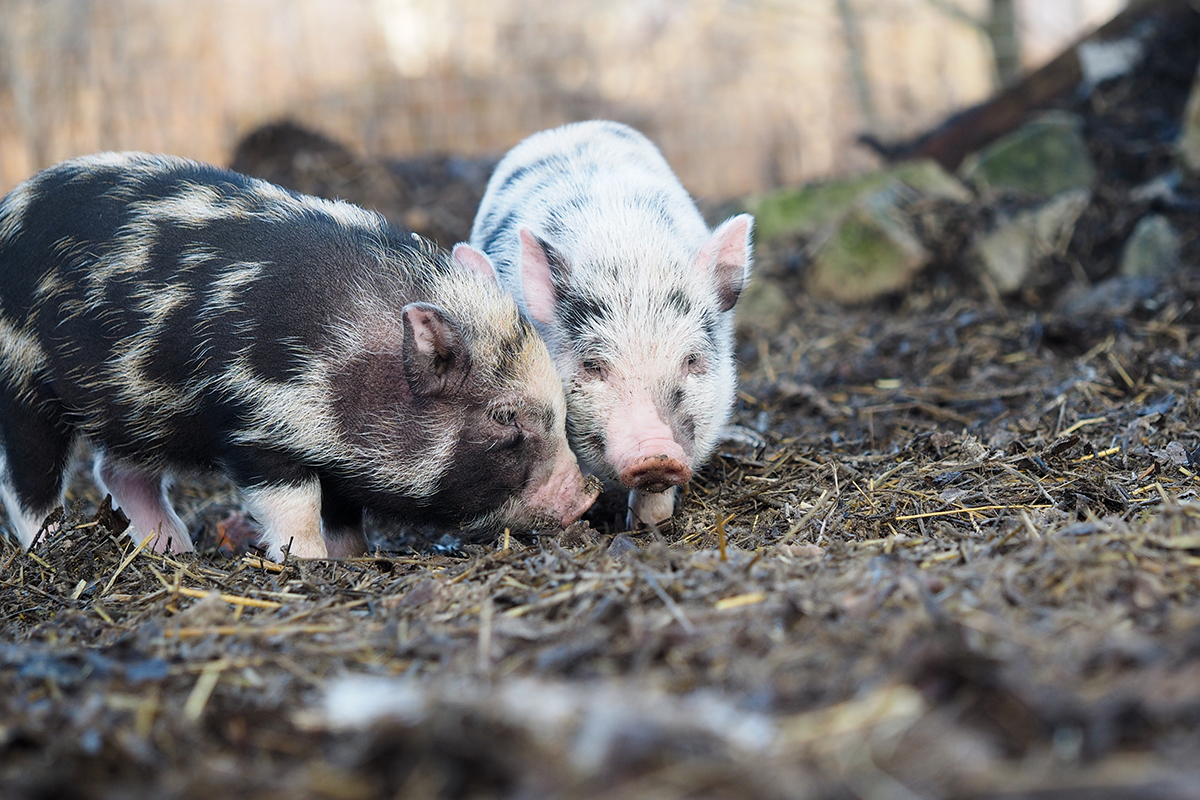Livestock vaccinations lead to healthy animals, healthy consumers and a profitable industry
Vaccines are critical to protecting the health of livestock such as pigs, which are a valuable source of protein for human consumption. It also protects the economic returns for livestock farming.
How do vaccines work?
Vaccines stimulate the body’s immune response against infectious agents by mimicking part of a disease-causing organism. An effective vaccine will result in a “memory” so that the animal is less likely to get sick when the immune system encounters the real microorganism.
Vaccines administered into the muscle typically do an excellent job of protecting the internal body from infection (ie, provide systemic immunity), but they may not be as good at protecting mucosal sites (such as the respiratory, digestive, reproductive, and the eyes) as a vaccine administered directly to these sites. When a vaccine prevents an infectious microorganism from colonizing mucosal sites, it protects animals before they become ill, but it also reduces the number of animals shedding the disease-causing microorganism into the environment, which in turn protects new members of the herd from exposure.
Considerations for successful livestock and swine vaccination
Livestock vaccines must protect against disease, but they must also be inexpensive to produce, simple and safe to administer, and administered at a time that is convenient for ranchers.
The incorporation of vaccines into current husbandry practices is critical for industry acceptance.
Couple pig vaccination with breeding
Many large pig farms use artificial insemination to raise pigs. Sows come into heat and are inseminated with commercial semen, which means that the uterus can be easily attacked with a vaccine in any breeding cycle. Our lab is investigating whether vaccines can be administered intrauterine to protect against reproductive diseases and allow piglets to passively transfer antibodies when suckling colostrum after birth.
To be successful, intrauterine vaccines must be formulated so that they do not affect sperm function, litter size, or piglet health and growth potential. We have conducted studies on sows already immunized during each pregnancy by the intramuscular route with a commercially available porcine parvovirus (PPV) vaccine.
For this study, we combined a PPV vaccine with semen immediately prior to artificial insemination. When blood samples were examined a few weeks after insemination, significant antibody titers were detected in the vaccinated sows compared to the control sows, suggesting that the uterus may be a suitable site for a booster immunization (1).
We repeated the experiment in a larger trial with young sows, this time using a Porcine Epidemic Diarrheal Virus (PEDV) vaccine. PEDV was first detected in Canada in 2014 on a pig farm in Ontario, it causes diarrhea and vomiting in pigs and can have a very high piglet mortality rate (50-100%).
VIDO developed a vaccine against PEDV that was used under special permission in Manitoba from 2016 to 2018 and licensed for further commercial development. Our laboratory is testing whether a PEDV vaccine administered to the sow’s uterus during breeding can protect suckling piglets from PEDV disease.

In these experiments, the sows never received PEDV vaccines (meaning they had no previous antibodies to the virus). We combined the PEDV vaccine with sperm immediately before artificial insemination and repeated the vaccination three times (2). Since the embryos are implanted two weeks after fertilization, the vaccine components are no longer present in the uterus at implantation and therefore the embryos/fetuses are not directly affected by the vaccine.
The results showed that the sows farrowed healthy piglets and that the number of piglets born alive and their birth weight and growth kinetics were comparable to piglets born to control sows over several weeks.
Although these experiments should be repeated in several hundred animals for confirmation, these results suggest that intrauterine immunization may not affect piglet fertility or growth kinetics, which are crucial milestones for acceptance by the swine industry.
The results also showed that the intrauterine vaccinated sows had significant antibodies to PEDV in their blood, uterine tissue and colostrum. Antibodies in the colostrum were taken up by the suckling piglets, but stress studies showed they were too low to provide strong protection against disease.
We are expanding the range of adjuvants (ie vaccine components that enhance an immune response) in the intrauterine vaccine to elicit much higher neutralizing antibody titers in the colostrum and better protect the suckling piglets against PEDV.
Many adjuvants are spermicidal and unsuitable for use in an intrauterine vaccine administered during breeding.
Therefore we work with the laboratory of Dr. Azita Haddadi (University of Saskatchewan) to formulate the vaccines as nanoparticles. Nanoparticles allow us to formulate the vaccine with many different adjuvants, which are then encapsulated to prevent the vaccines from coming into direct contact with the seed. We are currently testing the efficacy of several nanoparticle vaccines against PEDV (3).
The goal is to select a nanoparticle vaccine formulation that elicits the most consistent and robust immune responses in sows (and colostrum) without affecting sperm function or fertility when administered during artificial insemination.
Our studies have shown that intrauterine immunization is suitable for current husbandry practices, that it is fast, safe and stimulates sow immunity, and that colostrum antibodies can be passed to suckling piglets.
What next for PEDV vaccinations?
We are currently expanding beyond PEDV vaccines to investigate whether intrauterine immunization can protect suckling piglets against important neonatal diseases such as those caused by rotavirus. Escherichia coli, Streptococcus suisetc. We are also investigating whether intrauterine nanoparticle vaccines can protect against critical reproductive diseases such as swine reproductive and respiratory syndrome virus.
Vaccinations not only for pigs
While intrauterine immunization is a promising means of vaccinating pigs, this immunization method can easily be used by other livestock industries that use artificial insemination for breeding. Coupling breeding and vaccination could transform vaccination practices for the livestock industry.
references
1. G. Hamonic et al., Front Immunol. 2020;11:1015. 2. Choudhary P. et al., Vaccine. 2021;39(42):6322-32. 3. Choudhary P. et al. Front Vet Sci. 2022;9:931232.
editor Recommended article
#Investigation #method #vaccination #pigs


Leave a Comment